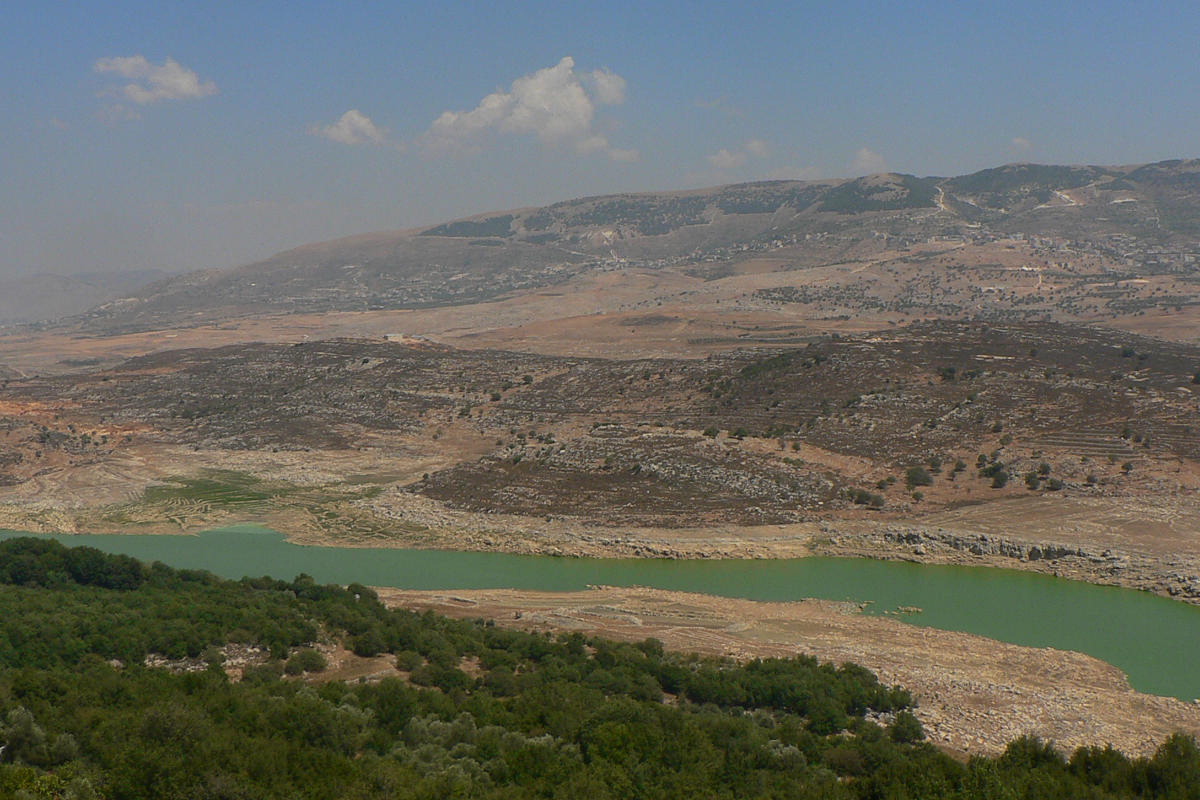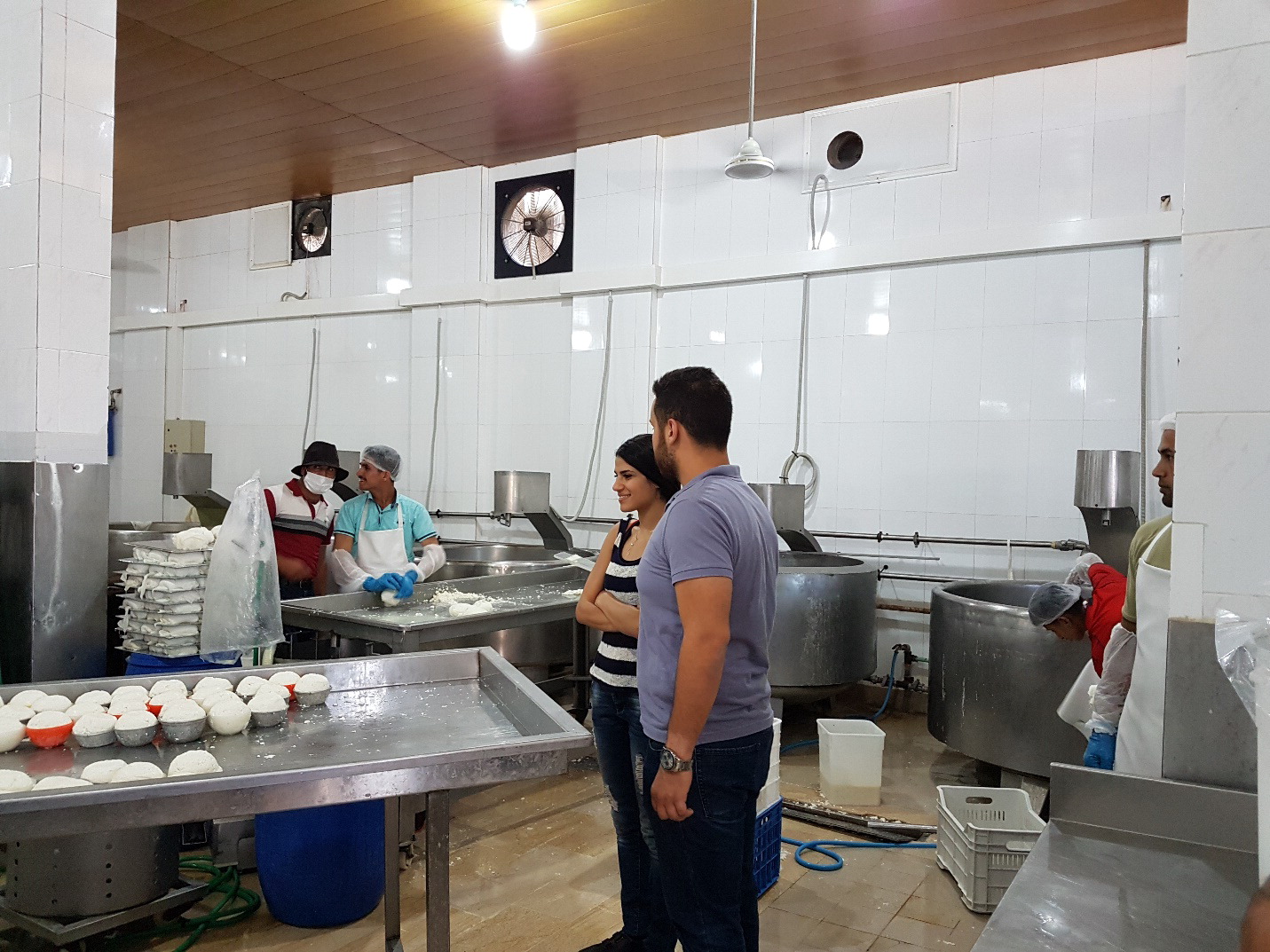|
Cycle 7 (2018 Deadline)
Advancing anaerobic digestion in the upper Litani basin for industrial wastewater treatment
PI: Mahmoud Wazne (mahmoud.wazne@lau.edu.lb), Lebanese American University (LAU)
U.S. Partner: Haluk Beyenal, Washington State University
Dates: January 2019 - December 2022
Project Overview
 | | Photo courtesy Alyce Abi Shdid |  | | Industrial wastewater collection - photo courtesy of Dr. Wazne |
This PEER project sought to advance the use of anaerobic digestion in the upper Litani basin in Lebanon to improve treatment for organic industrial wastewater discharge. The researchers demonstrated the applicability of anaerobic digestion and tested co-digestion of combined waste streams. While mono-digestion (using a single substrate) may fail or achieve low yield, co-digestion of wastewater from multiple industries can provide a balance in substrate nutrients. Co-digestion of combined waste streams can also provide potential collaborative treatment modalities among the industrial wastewater generators resulting in the reduction of the required capital cost.
Dr. Wazne and his team also enhanced anaerobic digestion treatment performance with a newly developed, integrated, bio-electrochemical reactor technology, building on complementary expertise of the PEER team and the U.S. partner. The project involved undergraduate and graduate students and prepared them for careers in fields associated with anaerobic digestion treatment.
Final Summary of Project Activities
The researchers conducted mono-digestion and co-digestion batch experiments using field-collected samples of whey, canned food, and poultry slaughterhouse wastewaters. The co-digestion experiments resulted in improved methane yield, likely due to the complementary characteristics of the wastewaters, which aided in balancing the anaerobic digestion process. Co-digestion also helped achieve greater biodegradability, reaching a level of approximately 84%.
The PEER team also undertook two bioelectrochemical enrichment experiments to improve the performance of the upflow anaerobic sludge blanket (UASB) reactors, one as a control and the other one using enriched microorganisms. The enriched UASB (UASB-E) yielded higher volumetric daily methane production and methane yield and resulted in significant removal of oxidizable pollutants. Observable methane production was noticed almost immediately in UASB-E compared with the control run (UASB-C). Furthermore, the enriched UASB run achieved stable chemical oxygen demand (COD) removal (85% total and soluble COD removal) in a shorter period of time as compared with a control run.
Both of the digestion experiments were published as part of a journal article, and the PI gave a presentation on his project at the 17th World Conference on Anaerobic Digestion held in June 2022 at the University of Michigan. The PEER team also organized two workshops to raise awareness about the applicability of anaerobic digestions for the treatment of industrial wastewaters, which were attended by about 100 people. Overall, the PEER project built research capacity in the fields of anaerobic digestion and bioelectrochemistry at Lebanese American University, helped support two graduate students in their work on anaerobic digestion, and provided training for several other graduate and undergraduate students, research assistants, and a postdoc. The PI also developed a new graduate course titled Environmental Water Chemistry to provide students with advanced training pertaining to environmental engineering.
As for the future, based on the published results demonstrating the applicability of anaerobic digestion for the treatment of industrial wastewater discharge in the upper Litani basin, Dr. Wazne reports that private industry has shown interest in application of the technology. The next step would be moving the technology from the lab to pilot-plant scale.
Publication
M. Abdallah, S. Greige, H. Beyenal, M. Harb, and M. Wazne. 2022. Investigating microbial dynamics and potential advantages of anaerobic co-digestion of cheese whey and poultry slaughterhouse wastewaters. Scientific Reports 12: 10529. https://doi.org/10.1038/s41598-022-14425-1
Back to PEER Cycle 7 Grant Recipients
|
|
|
|





